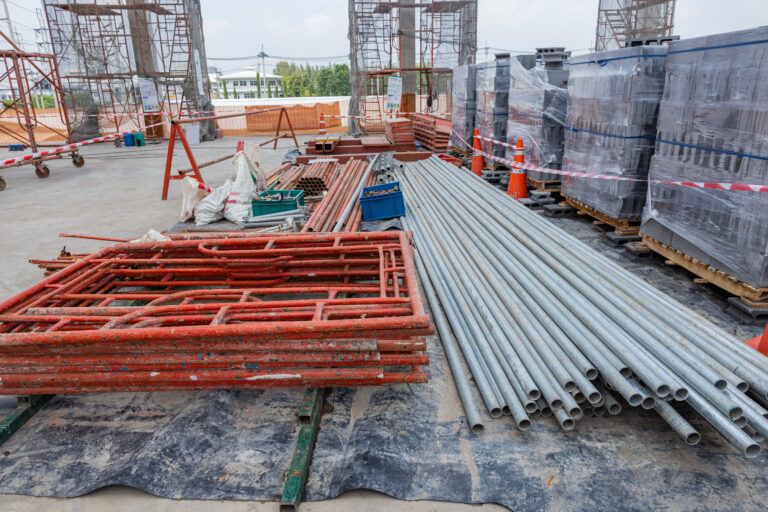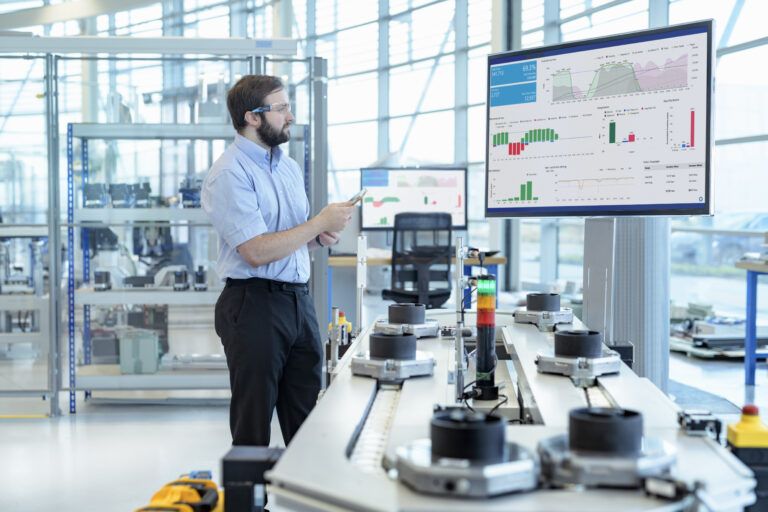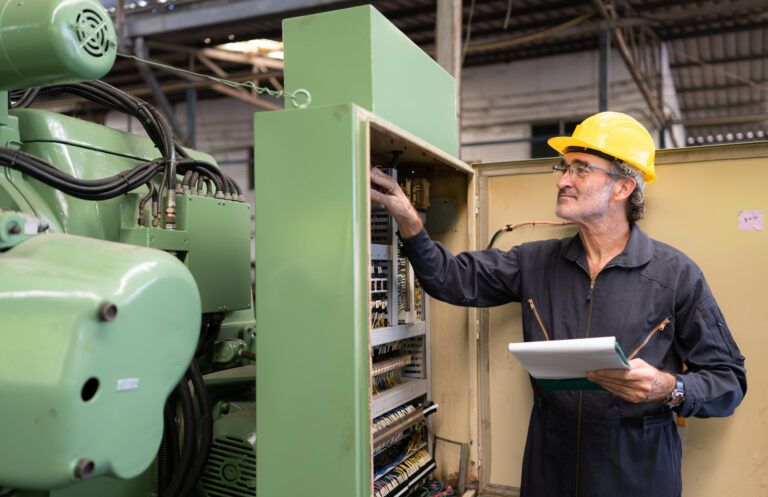In a world where efficiency and sustainability are more than just buzzwords, industries across the board are turning to advanced controls to revolutionise their production processes. Within disciplines like electrical engineering and process automation, the integration of sophisticated systems and algorithms is setting new standards for operational excellence. But what exactly are advanced controls, and how can they transform the way we produce goods and manage resources?
This article delves into the nuts and bolts of advanced control systems, exploring their potential to enhance performance, reduce waste, and ultimately, drive businesses towards a more profitable and sustainable future. Whether you’re a seasoned industry professional or simply curious about the latest technological advancements, join us as we uncover the secrets to optimising production with the power of advanced controls.
What Are Advanced Controls?
Advanced controls refer to sophisticated systems and algorithms used in industrial processes and various technologies to enhance performance, efficiency, and safety. These systems go beyond basic control mechanisms by incorporating elements of artificial intelligence, machine learning, and predictive analytics to make real-time decisions and adjustments. The primary goal of advanced controls is to optimise operations, reduce energy consumption, and minimise waste, thereby improving the overall effectiveness of the process to which they are applied.
At the heart of advanced controls is the ability to predict and respond to changes in the environment or process variables before they occur. This preemptive action is achieved through the integration of complex sensors and data analytics, allowing for a deeper understanding of the process dynamics. As a result, these systems can adapt to new conditions automatically, ensuring that the process remains within desired parameters.
The application of advanced controls spans across various industries, including manufacturing, automotive, aerospace, and energy. In manufacturing, for example, industrial automation experts deploy these technologies to adjust the production line in real time and maintain product quality. In the energy sector, they can optimise the operation of renewable energy sources by balancing supply and demand, increasing efficiency and reducing costs.
Advanced controls represent a significant step forward in automating and optimising complex systems. By leveraging the latest advancements in technology and data analysis, they enable industries to achieve higher levels of performance and sustainability.
Why Improve Production with Advanced Controls?
Improving production with advanced controls is essential for businesses seeking to enhance efficiency, reduce costs, and maintain competitive advantage. By integrating advanced controls, companies can achieve a higher level of process automation, leading to significant improvements in production speed and quality. These systems enable real-time monitoring and adjustments, ensuring that production processes operate within optimal parameters, thus minimising waste and energy consumption.
The adoption of advanced controls also addresses the challenge of high operational costs. By automating tasks that were previously performed manually, businesses can reduce labor costs and mitigate the risk of human error, which often leads to defects and rework. Furthermore, reliability engineering partners play a crucial role in embedding predictive maintenance strategies, reducing downtime and equipment-related disruptions.
In an era where product quality and operational efficiency are paramount, advanced controls offer a pathway to improved product consistency and faster throughput. This not only satisfies customer demand for high-quality products but also enhances the company’s reputation in the market. Consequently, the strategic implementation of advanced controls is not just about technological advancement but about driving business growth and sustainability in a competitive landscape.
Identify Current Production Challenges
Identifying current production challenges is a critical step towards implementing effective solutions. Addressing these challenges requires a strategic approach to optimise production processes, reduce waste, and enhance product quality.
Lack of Efficiency
Inefficient production processes lead to increased resource usage and higher costs, negatively impacting profitability.
High Energy Consumption
Excessive energy use not only elevates operational expenses but also impacts the company’s environmental footprint.
Slow Production Rates
Limited output speed struggles to meet market demand, risking customer satisfaction and potential sales.
High Operational Costs
Elevated costs from various factors, such as energy use and labor, reduce overall business competitiveness and profit margins.
Expensive Manual Labour
A heavy reliance on manual processes increases labor costs and the potential for human error.
Frequent Equipment Breakdowns
Regular equipment failures disrupt production continuity, leading to downtime and increased maintenance expenses.
Quality Inconsistencies
Inconsistent product quality can severely damage a brand’s reputation and customer trust.
Variability in Product Dimensions
Variations in product size and shape can lead to customer rejection and significant wastage.
Defects and Rework
The need to correct defects and perform rework adds significantly to production costs and time delays.
Understand the Basics of Advanced Control Systems
Advanced control systems are pivotal in modernising industrial operations, offering a blend of PID Controllers, Programmable Logic Controllers (PLCs), and Distributed Control Systems (DCS). Understanding these systems’ fundamentals is crucial for leveraging their potential to optimise production, reduce costs, and improve product quality.
PID Controllers
PID Controllers are crucial for precise adjustments in temperature, flow, and pressure control, ensuring optimal operation within these critical parameters.
Programmable Logic Controllers (PLCs)
PLCs automate and streamline specific processes, machines, or production lines, significantly enhancing operational efficiency and reducing the need for manual intervention.
Distributed Control Systems (DCS)
DCS are designed to coordinate control processes across extensive installations, ensuring efficient operation and communication between various components and systems.
Evaluate the Types of Advanced Controls Suitable for Your Production
Evaluating the right advanced controls for your production involves understanding the unique needs of your operation and the capabilities of various control systems. The goal is to enhance production efficiency, reduce operational costs, and improve product quality, aligning with the strategic objectives of your business.
Real-time Monitoring and Adjustments
This feature enables immediate response to process deviations, ensuring that production conditions are always maintained at an optimal level.
Predictive Maintenance
Leverages advanced analytics to predict equipment failures before they occur, significantly reducing downtime and maintenance costs.
Automated Quality Control
Employs sensors and cameras to meticulously detect defects, substantially enhancing product quality and reducing waste. Automated quality control consultants help implement these systems to align defect detection with production KPIs.
Implement Advanced Control Systems
Implementing advanced control systems requires a well-structured approach, beginning with planning and design to assess current systems and define precise requirements. Integration with existing systems is crucial to ensure compatibility and seamless operation, avoiding disruptions in production processes. Training for operators plays a pivotal role in the successful adoption of these technologies, encompassing both on-site and virtual training sessions.
This phase is essential for empowering staff with the knowledge and skills to manage and utilise the new control systems effectively. The ultimate goal is to achieve a harmonious integration of advanced controls into the production environment, enhancing efficiency, reducing costs, and improving product quality through sophisticated monitoring and automation capabilities.
Planning and Design
Begins with assessing current systems and defining specific requirements, laying the groundwork for successful implementation.
Integration with Existing Systems
Critical for ensuring compatibility and seamless operation, this step ensures that new control systems work harmoniously with existing infrastructure.
Training for Operators
A vital component, focusing on on-site and virtual training sessions to equip operators with the skills needed to manage and utilise the advanced control systems effectively.
Monitor and Optimize the Control Systems
Monitoring and optimising advanced control systems are critical for maintaining peak performance in production environments. This ongoing process supports the goal of achieving increased efficiency, reduced operational costs, and improved product quality, ensuring the advanced control systems deliver on their promise of enhancing production capabilities.
Continuous Data Analysis
Involves the use of analytics software to gain deep performance insights, essential for pinpointing areas for enhancement.
System Adjustments Based on Performance Feedback
Facilitates the fine-tuning of parameters based on data-driven feedback, ensuring the system’s optimal performance.
Regular Maintenance and Updates
Demands scheduled checks and timely software updates to keep the system running efficiently and up-to-date with technological advancements.
Advanced process control consultants are often engaged to manage this phase, ensuring systems are continuously tuned to evolving operational conditions.
Measure the Improvements in Production
Measuring the improvements in production following the implementation of advanced control systems is essential to quantify their impact. These improvements not only bolster the financial health of the business but also strengthen its competitive position in the market.
Increased Efficiency
Achieved through streamlined processes and optimised resource use, leading to enhanced productivity.
Reduction in Energy Use and Faster Throughput
Results in significant energy savings and increased production speed, directly impacting profitability.
Reduced Operational Costs
Lower costs are realised from the combined effect of increased efficiency, reduced energy use, and faster throughput.
Lower Labor Costs and Maintenance Expenses
Automation and predictive maintenance contribute to a reduced need for manual labour and fewer repairs.
Improved Product Quality
Advanced controls ensure products meet high-quality standards, with fewer variations and errors.
Consistency in Product Specifications and Reduced Defects
Leads to a more reliable product output, enhancing customer satisfaction and reducing waste.
Unlocking New Levels of Performance
Advanced control systems are more than just a technological upgrade, they’re a strategic advantage in today’s competitive and sustainability-driven market. Throughout this article, we’ve examined how these systems improve efficiency, reduce costs, and enhance product quality by enabling real-time monitoring, predictive maintenance, and automated quality control. From identifying production challenges to implementing and optimising control systems, it is clear that advanced controls play a pivotal role in transforming industrial operations.
At Vista Projects, our expertise in system integration and data-driven engineering solutions empowers clients to implement and fine-tune advanced control systems that align with their unique production goals. Our commitment to operational excellence ensures you get the performance boost your business needs.
Interested in elevating your production capabilities? Contact Vista Projects today and discover how advanced controls can redefine efficiency in your operations.









